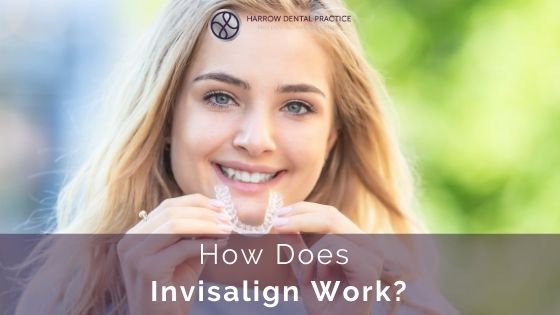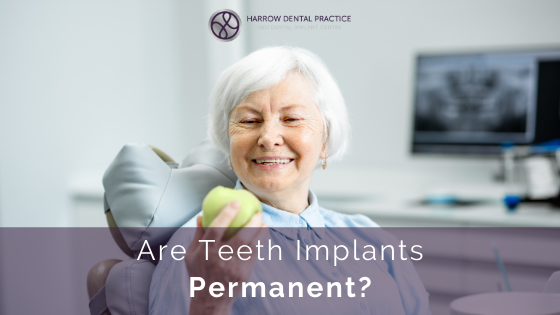 If you are thinking about getting your teeth straightened with orthodontic treatment, you might find yourself stuck between different available teeth straightening options. Like many people, you might also be wondering whether the Invisalign removable aligners actually work – and whether they are a suitable option for you. But don’t worry, if you are also seeking answers to the above questions, this article is for you; it explains everything you need to know about orthodontic treatment options so that you can make an informed decision.
If you are thinking about getting your teeth straightened with orthodontic treatment, you might find yourself stuck between different available teeth straightening options. Like many people, you might also be wondering whether the Invisalign removable aligners actually work – and whether they are a suitable option for you. But don’t worry, if you are also seeking answers to the above questions, this article is for you; it explains everything you need to know about orthodontic treatment options so that you can make an informed decision.
Is Invisalign Really Better Than Braces?
Whether it is the conventional metal braces or the contemporary Invisalign aligners, every orthodontic treatment system has its own merits and demerits. The Invisalign aligners offer several benefits over the traditional metal braces. The most important positive feature of the Invisalign aligners is that they are made from a transparent material. Therefore, the Invisalign aligners are virtually invisible when you wear them. Also, since the aligners can be removed, they allow you to eat all your favourite foods and brush your teeth and floss without difficulty.
When it comes to their efficacy, the Invisalign aligners are an excellent option for fixing a wide range of mild to moderate orthodontic problems. However, for more complex or complicated orthodontic issues, your orthodontist may recommend getting braces.
What Disadvantages Are There To Invisalign?
Invisalign aligners are an excellent option for individuals who wish to get their teeth straightened without wearing the unesthetic metal braces. Despite their numerous benefits, Invisalign aligners – like other orthodontic treatment options – have a few disadvantages. The first drawback is that the success of treatment with Invisalign is highly dependent on patient compliance. The aligners will only work if you wear them for at least 22 hours each day. Therefore, Invisalign aligners may not provide the desired results in individuals who do not follow their dentist’s instructions regarding their care and use.
Another drawback of the Invisalign aligners is that these aligners are more expensive than conventional braces. Furthermore, the removable aligners may require a longer treatment time to fix complicated or complex problems than the fixed braces. Before starting your treatment, your dentist will perform a thorough clinical exam and evaluate a digital scan of your teeth to prepare a custom treatment plan – and to ascertain which orthodontic treatment option best suits your orthodontic treatment needs.
Can Invisalign Damage Your Teeth?
Your dentist or orthodontist will design multiple sets of numbered aligners for you. You will be asked to wear each aligner set for 14 days – wearing them at least for 22 hours each day. American Association of Orthodontists, your aligners will be designed in such a way that they will gradually move your teeth in the desired direction – by applying calculated and gentle forces. Therefore, they will not harm your teeth or gums in any way. Each set of aligners will continue to realign your teeth – bringing you one step closer to a naturally beautiful and healthy smile.
How Good Are Invisalign Braces?
The success of Invisalign treatment depends on various factors. The most important among them is the skill of the orthodontist. While you may find many general dentists offering orthodontic treatment – and even they are legally allowed to do so – they do not have the same experience and skills as a specialist orthodontist. According to the National Health Service (NHS), orthodontists have to undergo three or four years of specialised training after dental schools before they are considered specialists in their field. Therefore, it is always good to go to an orthodontist if you need braces or Invisalign treatment.
What Can Invisalign Not Fix?
Invisalign aligners can be used to treat a wide range of orthodontic problems such as tooth spacing, crowding misalignment, and mild rotation. For moderate to severe orthodontic issues, your orthodontist may rely upon special Invisalign attachments – that are attached to your teeth – and serve as anchors, allowing your aligners to perform complex tooth movements like rotations and transverse movements.
Despite that, there are few cases involving bite problems that may not be suitably treated with Invisalign aligners. For these cases, your dentist may recommend conventional metal braces for optimal treatment.
Why Do So Many People Use Braces And Not Invisalign?
There are many factors why many people continue to choose metal braces for their treatment. First, the Invisalign aligner treatment is expensive, and not all people can afford it. Furthermore, the Invisalign treatment is not covered by the NHS, while orthodontic treatment with braces is only available for youngster below 18 years of age.
Second, not all dentists are skilled or experienced enough to perform orthodontic treatment with clear aligners. Therefore, they would instead treat their patients with whatever treatment option they are more comfortable and skilled at – the conventional metal braces.
Finally, a small number of patients have to wear braces – despite their desire to get treated with Invisalign aligners – because they are not suitable candidates or because their problem cannot be fixed with removable aligners.
To sum up, both metal braces and clear aligners are effective in fixing misaligned or crooked teeth. However, they work in different ways. If you wish to straighten teeth, you must go to a fully trained and qualified dentist who has extensive clear aligner therapy experience. If you are looking for an orthodontic practice in Hornchurch for Invisalign aligners, look no more.
At the Harrow Dental Practice, we have a team of qualified and experienced dentists who have years of experience in turning flawed and blemished smiles into picture-perfect, naturally beautiful smiles with Invisalign aligners.
So, what are you waiting for? Book a free video consultation appointment with us today, and let us give you a set of perfectly aligned pearly whites and a brand new smile.

